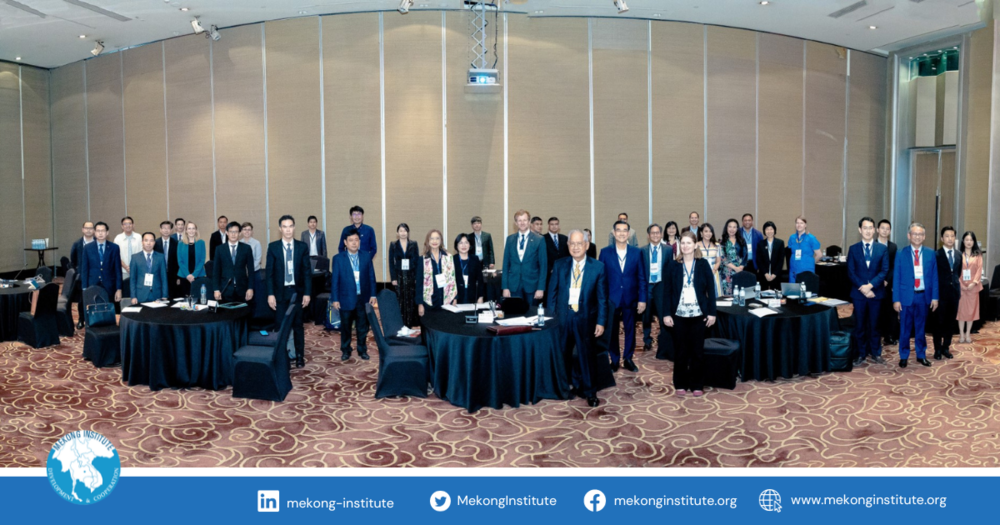In a pledge to genuine transparency, accountability, and collaboration, the Mekong Institute (MI) convened with its development partners in Bangkok on November 16, 2023. The gathering marked a significant occasion as MI reintroduced its work portfolio and unveiled key findings from the mid-term review of its five-year strategic plan.
Dignitaries from the MI Steering Committee, composed of representatives from P. R. China, Cambodia, Lao PDR, Myanmar, Thailand and Viet Nam, MI Coordinating Agencies, and international and government organizations, graced the event.
MI Executive Director Suriyan Vichitlekarn gave a glimpse of MI’s operations, underscoring the indispensable role of alliances with development practitioners in realizing MI’s vision. Mr. Suriyan also shared the result of an independent mid-term review of MI’s Strategic Plan 2021-2025, highlighting its contribution to regional development in the Greater Mekong Subregion (GMS) amidst challenges.
“We at MI are dedicated to initiating an open and productive dialogue with our development partners. I would like to underscore the importance of collaboration and co-creation as we navigate the intricate landscape of regional challenges. The complexities we face demand collective insights, diverse perspectives, and innovative solutions. Alone, our impact may be limited, but together, our potential is boundless,” ED Suiyan emphasized.
Echoing this sentiment, MI Steering Committee Chairman, Dr. Narongchai Akrasanee, stressed the cruciality of strong regional cooperation. “I believe it’s through our collective dedication that we can achieve meaningful results. It’s fantastic to see more development partners joining us, a testament to the positive impact we’ve had in MI’s 27-year journey,” said Dr. Narongchai.
The meeting hosted an interactive session using an online polling activity. Development partners were asked questions that aimed to identify strategies, approaches, and priority areas for enhancing capacity development efforts in the context of regional cooperation and integration (RCI) in the GMS.
Answering the questions about the challenges of advancing RCI in the GMS, partners identified development gaps, political barriers, and divergent priorities, among others.
In terms of strategies needed to promote and strengthen RCI, responses to the poll identified data sharing, regional framework alignment, south-south cooperation, youth empowerment, gender equality promotion, institutional investments, and awareness-raising.
Partners shared insights on capacity-building needs in the GMS, with a focus on green economy, digitalization, cross-sector planning, supply chain management, renewable energy, and soft infrastructure.
High-level representatives from the embassies of Australia, Germany, the Republic of Korea, and Sweden in Bangkok, as well as international organizations including the Deutsche Gesellschaft für Internationale Zusammenarbeit (GIZ) GmbH, Japan External Trade Organization (JETRO), Stockholm Environment Institute (SEI), and USAID’s Regional Development Mission for Asia (RDMA), delivered brief statements, expressing support for advancing RCI and collaborating with MI.
The 2023 Development Partners’ Meeting reaffirmed not only MI’s commitment but also that of development advocates in the GMS, emphasizing their dedication to achieving lasting and meaningful progress.








